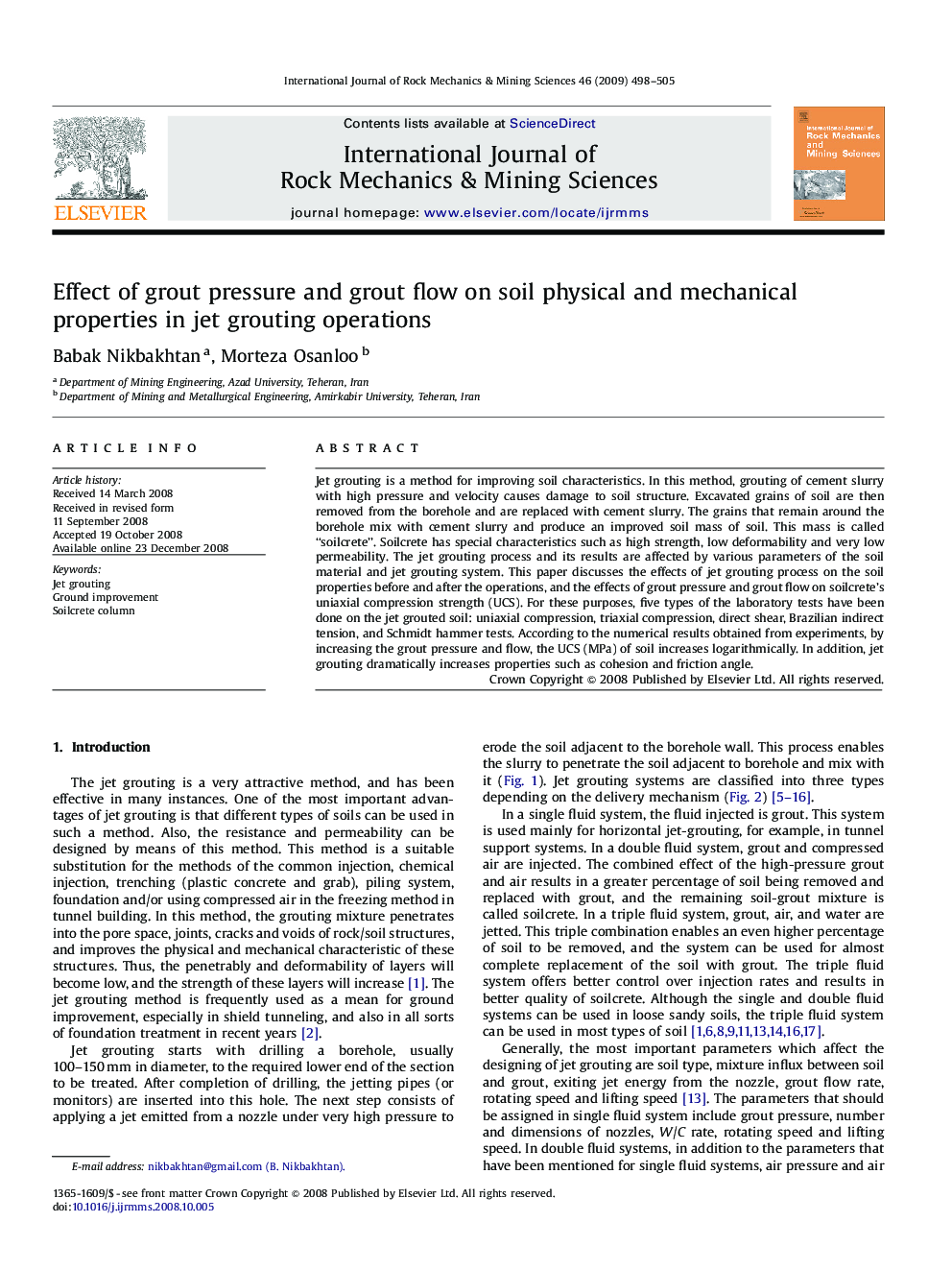| Article ID | Journal | Published Year | Pages | File Type |
|---|---|---|---|---|
| 810236 | International Journal of Rock Mechanics and Mining Sciences | 2009 | 8 Pages |
Jet grouting is a method for improving soil characteristics. In this method, grouting of cement slurry with high pressure and velocity causes damage to soil structure. Excavated grains of soil are then removed from the borehole and are replaced with cement slurry. The grains that remain around the borehole mix with cement slurry and produce an improved soil mass of soil. This mass is called “soilcrete”. Soilcrete has special characteristics such as high strength, low deformability and very low permeability. The jet grouting process and its results are affected by various parameters of the soil material and jet grouting system. This paper discusses the effects of jet grouting process on the soil properties before and after the operations, and the effects of grout pressure and grout flow on soilcrete's uniaxial compression strength (UCS). For these purposes, five types of the laboratory tests have been done on the jet grouted soil: uniaxial compression, triaxial compression, direct shear, Brazilian indirect tension, and Schmidt hammer tests. According to the numerical results obtained from experiments, by increasing the grout pressure and flow, the UCS (MPa) of soil increases logarithmically. In addition, jet grouting dramatically increases properties such as cohesion and friction angle.
